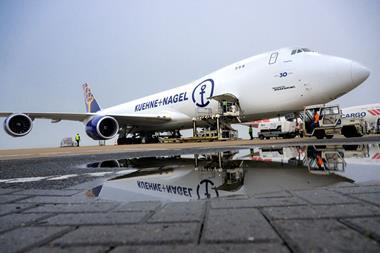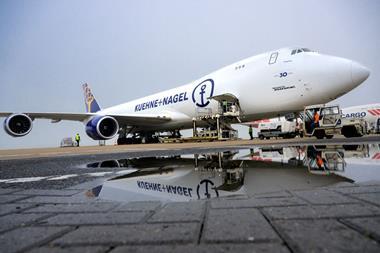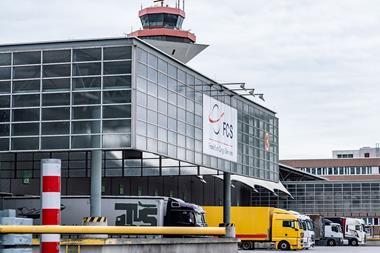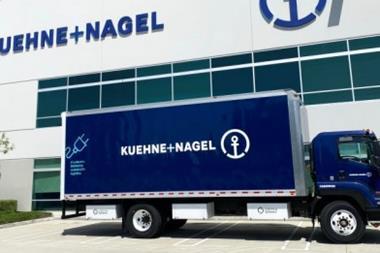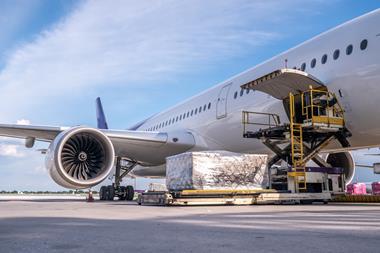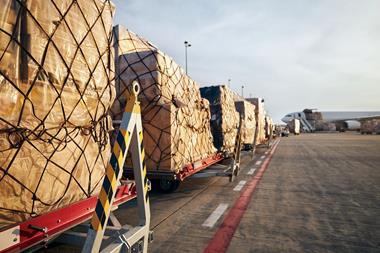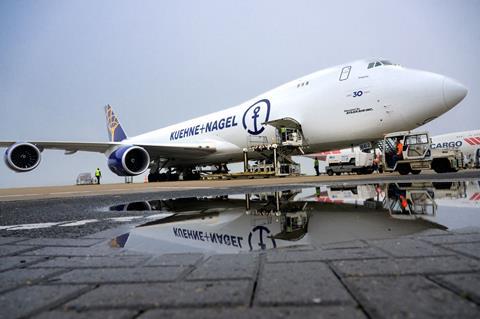
Kuehne+Nagel is expecting a muted peak season this year due to customers "front-loading" volumes to avoid potential disruption.
Following the announcement of its third-quarter results, the world's largest forwarder provided its perspective on the coming air cargo peak market.
The company is expecting its air cargo volumes to grow by a low single-digit level compared with last year and also sequentially. This is down on previous expectations.
"We see a muted peak season this year in quarter four," said K+N chief executive Stefan Paul. He added: "This contrasts with our more bullish expectation at mid-year.
"It partially reflects the extent of front-loading earlier in the year, the reduced potential emergency demand as seafreight disruption has eased, and the actual demand in some key segments, such as the German auto sector, which fell short of expectations."
Explaining the front-loading trend experienced during the third quarter, Paul said: "Front-loading was a reaction by supply chain disruption sparked by the rerouting away from the Red Sea, potential fallout from port strike actions in the US and geopolitical uncertainties.
"These uncertainties persist with US election now in focus and its potential impact on trade policy."
K+N is not the only company to express doubt over the strength of the upcoming peak season, although this perhaps depends on the segments where companies have a strong presence with e-commerce expected to fuel much of the growth.
Later in the call, the forwarder said that its volumes had been growing slower than the overall air cargo market - IATA has been reporting double-digit volume growth for much of the year - because it has a smaller presence in the e-commerce market where much of the growth is emanating.
In the third quarter, K+N's air cargo volumes were up by 6.6% year on year. Its e-commerce volumes are mostly handled by its Asia-based Apex subsidiary.
Airlines, which IATA figures include, are more likely to benefit from the uptick in e-commerce demand as the likes of Temu and Shein have the buying power to contract directly with the airlines, bypassing the need for forwarders.

https://www.aircargonews.net/business/supply-chains/port-strike-suspension-relieves-air-cargo-pressure-but-peak-outlook-remains-tight/










